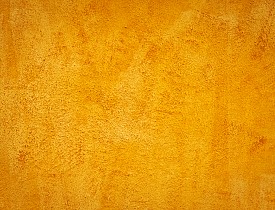Cement Paint
 "Cement paint" is one of the common names for a family of special paint coatings made for masonry and cement-based materials, including concrete, mortar (and brick), concrete block and stucco. Similar coatings may be called "masonry paint" or "concrete paint." (For the record, cement is merely the binder in many masonry mixes; it's not synonymous with concrete or mortar.)
"Cement paint" is one of the common names for a family of special paint coatings made for masonry and cement-based materials, including concrete, mortar (and brick), concrete block and stucco. Similar coatings may be called "masonry paint" or "concrete paint." (For the record, cement is merely the binder in many masonry mixes; it's not synonymous with concrete or mortar.)
When painting masonry around your house, the keys to success are using the right paint for the material, preparing the surface properly and applying the paint as directed (yes, you really do have to read the directions this time). Find out more below.
Paint, Not Stain
Most people understand the difference between paint and stain when it comes to wood, but there's still a lot of confusion about paints versus stains for concrete. Similar to regular paint, concrete paint is an opaque surface coating that essentially blankets and adheres to the concrete surface. Concrete stain, like its counterpart for wood, is a thin, semi-transparent liquid that soaks into the pores of the concrete and changes the color of the material itself-permanently.
In general, concrete paint is a better choice if you want a completely new-looking surface; it hides stains and discoloration and creates a plastic-like finish in the desired color. That's why most people use paint for renewing old garage floors. Concrete stain is appropriate for both indoor and outdoor applications and offers a more natural coloring and texture than paint. It won't hide color variations in the original surface. Stain is great for concrete countertops or patios, to name 2 examples.
Types of Paint for Masonry
Cement paint and other masonry coatings come in a range of types and, in many cases, a relatively narrow range of colors. Each formulation is designed with specific performance characteristics. Exterior wall paints are available in both water-base and oil-base versions. For many applications, a premium, 100% acrylic masonry paint is recommended. If you're painting a poured concrete or block basement wall, you might want a waterproofing paint that resists moisture penetration from the outside. Elastomeric paint is often recommended for masonry walls that have a lot of hairline cracks and porous surfaces. It goes on thick and is highly flexible and does of good job covering pinholes and other imperfections.
The ideal paint for garage floors is epoxy paint (see below). For every other type of surface, your best bet is to talk with knowledgeable staff at a few good paint stores. They can steer you toward the right products for your material and application.
Cement Paint for Garage Floors
Like the heavy-duty glues, epoxy paint is a two-part liquid that's mixed prior to application. It sticks like crazy and creates a tough, plastic-like layer that's resistant to oil, gasoline, antifreeze, tar, salt and other crud tracked in on your car's tires. It also won't stick to road-heated tires like regular paint can. Epoxy paint is available in DIY-friendly kits that include a cleaning solution. Many products can be used with optional colored chips or non-slip additives such as quartz crystals.
Cement Paint Dos and Don'ts
- Do follow the manufacturer's instructions to the letter. Thorough cleaning and other prep work plus a careful application are critical to a long-lasting paint job.
- Do apply a primer or sealer, if recommended by the paint manufacturer. Primer and paint from the same manufacturer are specifically formulated for a good bond.
- Don't use regular paint. Masonry needs to "breathe" more than other building materials. Standard paints trap moisture and will soon bubble and peel due to water vapor trying to escape.
- Don't paint new concrete until it has fully cured. The standard minimum wait is 28 days, but check with the paint manufacturer for recommendations.
- Don't make a hasty decision to paint. Unpainted exterior masonry, such as brick siding and concrete patios, is essentially maintenance-free. Painting creates a maintenance issue for the life of the house.
There's a reason cement paint is different from regular paint. Apply your new coating carefully, if indeed you do decide to paint your masonry. Hire a concrete specialist for a professional paint job.
Updated February 15, 2018.
Looking for a Pro? Call us (866) 441-6648

Painting Average Costs
Painters Experiences

Nursery Painted Just In Time To Welcome Our New Baby Boy

Rotted Fence Repair Taken Care Of Fast And Efficiently



